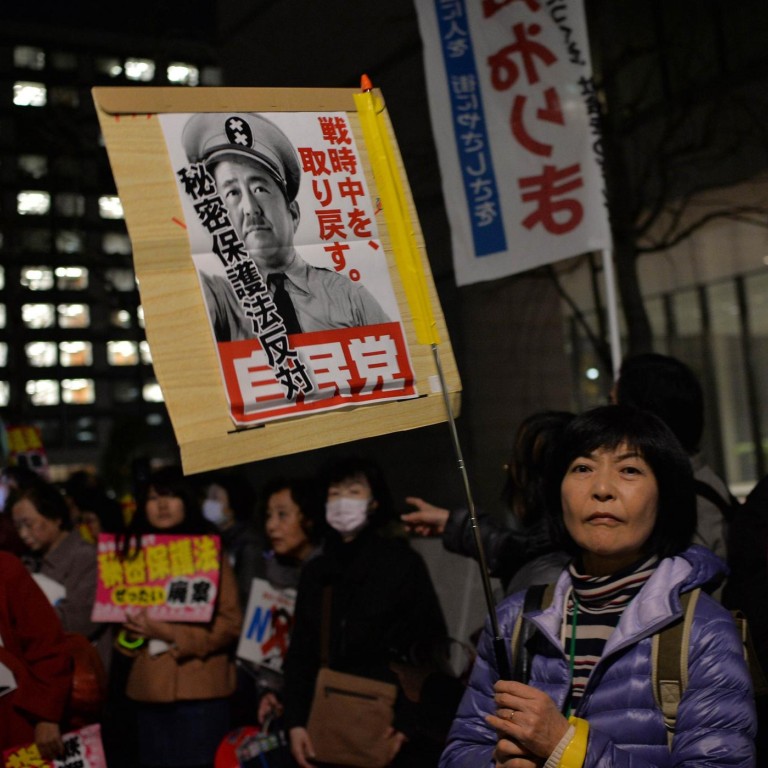
Japanese parliament enacts secrets law critics fear will muzzle media
Enactment comes despite opposition from critics who fear measure will muzzle the media
Japan enacted a state secrets law toughening penalties for leaks yesterday, despite public protests and criticism that it will muzzle the media and help cover up official misdeeds.
Prime Minister Shinzo Abe, keen to beef up Japan's security amid rising concerns about China's military assertiveness, has said the law is needed for the smooth operation of a new national security council and to persuade foreign countries such as close ally the United States to share intelligence.
Media, publishers, lawyers and even entertainers have denounced the bill, which drastically expands the definition of state secrets and for some has echoes of Japan's harsh authoritarian regime before and during the second world war.
Chief Cabinet Secretary Yoshihide Suga said the government would make efforts to explain the law and win the country's trust before the measure takes effect.
"We think that this law is extremely important for our connections with our allies and other foreign nations," he said. "I believe that people will come to understand."
The bill, previously approved by parliament's lower house, was enacted into law in a raucous, late-night session by the upper chamber after a series of delaying tactics by opposition parties.
Under the law, public servants or others with access to state secrets could be jailed for up to 10 years for leaking them. Journalists and others in the private sector convicted of encouraging such leaks could get up to five years if they use "grossly inappropriate" means to solicit the information.
Thousands of protesters, bundled in coats against the chill, gathered across from the parliament building, chanting "Shame on you, Shinzo Abe".
"This was really rushed through too fast and you have to wonder why the hurry now," one man told public broadcaster NHK. "I think we'll really regret this later."
In the days before passage, the government scrambled to address complaints that there was no independent review process to ensure the law was not abused by bureaucrats seeking to hide mistakes or misdeeds, including suggesting an oversight body whose members would require parliamentary approval.
But the proposed mechanisms are not mandated by the law, and critics said they failed to remove concerns that the oversight will not be truly independent.

